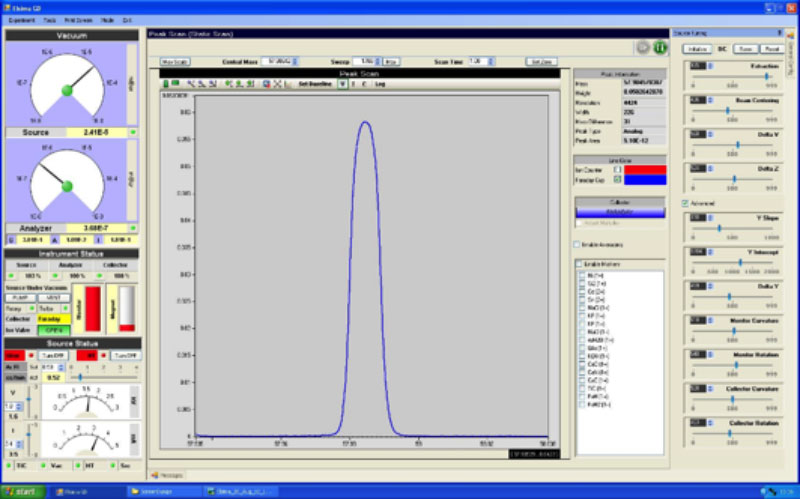KEMS Applications
The KEMS instrument can provide quantitative, kinetic and thermodynamic information about isotopes and compounds contained in an analyte by assessing the gaseous emissions. This type of information is invaluable for any material required to operate at high temperatures and pressures.
KEMS is often applied to the investigation of such materials as:
metal oxides
high temperature ceramics
nuclear fuels
superconductors
glasses
corrosion layers
superalloys
vapour deposited coatings
fuel cells
geochemistry materials
hydrocarbons
aerosols
cements
batteries
KEMS as a Research Tool
KEMS is a well known powerful technique for the study of thermodynamics and high temperature vapours, but it has also proven beneficial in other areas of research. Some areas of study for which KEMS is currently the instrument of choice include:
gas phase reactions of high temperature vapours
liquidus lines
vaporisation coefficients
kinetics of processes involving vapour species
high temperature clusters and unusual bond types
plasma diagnostics
See our KEMS page for more information.



 Follow us
Follow us 